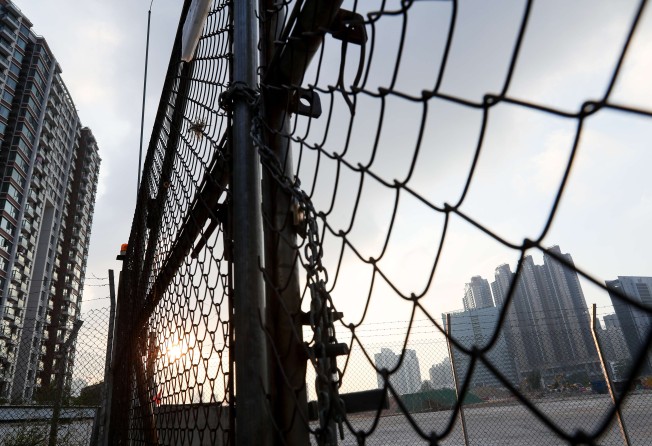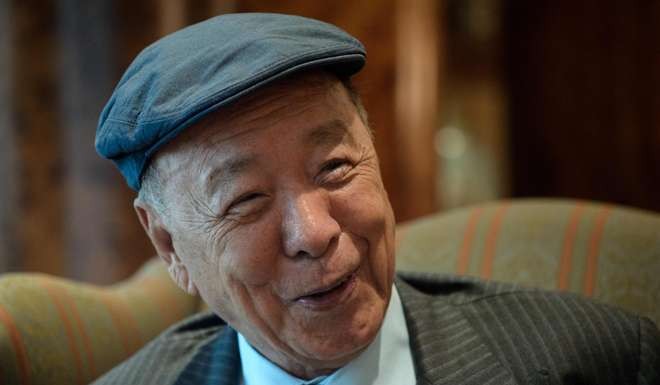Hong Kong’s developer cartel is beginning to lose its grip
The insane purchase price for a Kai Tak land site by mainland developer HNA Group illustrates how local developers are no longer the only game in town

When Hong Kong tycoon Lui Che-woo complains of difficulty in bidding against mainland developers at government land tenders, one can almost hear a cracking sound.
A two-decade long oligopoly is crumbling in. Falling apart is their dominance not only in land purchases but also pricing of flats.
Lui must be feeling a bit relieved with the news of Beijing clamping tighter control over overseas investment by mainland companies; though the reality is it won’t last long.
Invading the old world are aliens who don’t seem to be bound by the law of gravity, as seen by HNA Group’s HK$8.8 billion bid for the Kai Tak land plot.
Cost is nothing. HNA, a Hainan-based conglomerate, is sitting on a 145 per cent net gearing while its Hong Kong competitor CK Hutchison is at 1.2 per cent. HNA is borrowing at 8.15 per cent, which is four times of what CK Hutchison is paying. Yet, it outbid local developers by almost a 100 per cent.
Profit is nothing. Flat prices in Kai Tak need to increase by more than 1.5 times for HNA to be in the black.
Knowledge is nothing. Before the Kai Tak bid, HNA was not seen spending much time studying new or old auction documents to gain an understanding of the Hong Kong market.
The investment is as opportunistic as what it has done elsewhere. Over the last 12 months, it has showered at least HK$240 billion on more than 10 assets, including golf courses, hotels, London properties, an electronics distributor, and an airline caterer and cargo handler.
This is a new breed to a market where certainty has been the norm, at least to the few big boys.

It is a small privileged club where members were called by their first name and have a good understanding of each other’s cost structure and advantages.
They competed for land. Yet, a phone call among themselves could easily turn a head-to-head battle into a co-operation within a few minutes. After all, they could easily make a ball park guess of each other’s ceiling bid.
Similarly, when it came to flat sales, it didn’t take much to estimate when, how many and at what price the rivals were selling. The number of architects and banks in this town wasn’t large enough to keep anything secret.
The ground rule is no official price cutting; however, many offer discounts, cash rebates or gifts.
It was an orderly competition with low risk and lucrative returns. With economic success came overwhelming political clout.
The tables begun to turn by 2012. Chairman Xi Jinping was determined to clip the wings of developers. Hong Kong should have only one boss and it’s certainly not the developers.
The triumvirate was shaken up via a personnel reshuffle including a new Chief Executive for Hong Kong and a new director of the Joint Liaison Office.
Genuine competition was encouraged. Rules and tender practises were changed to bring in smaller developers. Pre-sale restrictions were introduced to slow down the recouping of cash and therefore limiting the big boys’ financial muscle.
The tycoons were not happy but the pain has yet to be felt. The fact is small, local developers are not in the same league in terms of financial strength; whereas sophisticated peers from the mainland are still on a steep learning curve.
The arrival of “amateurs” from across the border tipped the scale, bringing in uncertainty that the old boys have never seen.
If the purpose of these new comers is indeed to take money out from the country to mitigate political and depreciation risk, none of the old rules apply any longer.
How are the old boys going to bid against a competitor who appears to have no financial constraints? How are they going to estimate the disposal strategy and pricing of a competitor who works on a different set of economics? How are they going to hold up the price when some players may not make profitability its priority?
Patience won’t help here. What kind of cooperation or long-term relationship can the local boys possibly cultivate with the hit and run new comers?
Beijing’s new check on overseas investment may hold back some of the “amateurs” for a while. Yet, it won’t take long for the latter, who are maestros of gaming, to get around the new barriers.
Gone are the good old days but no tear will be shed.
